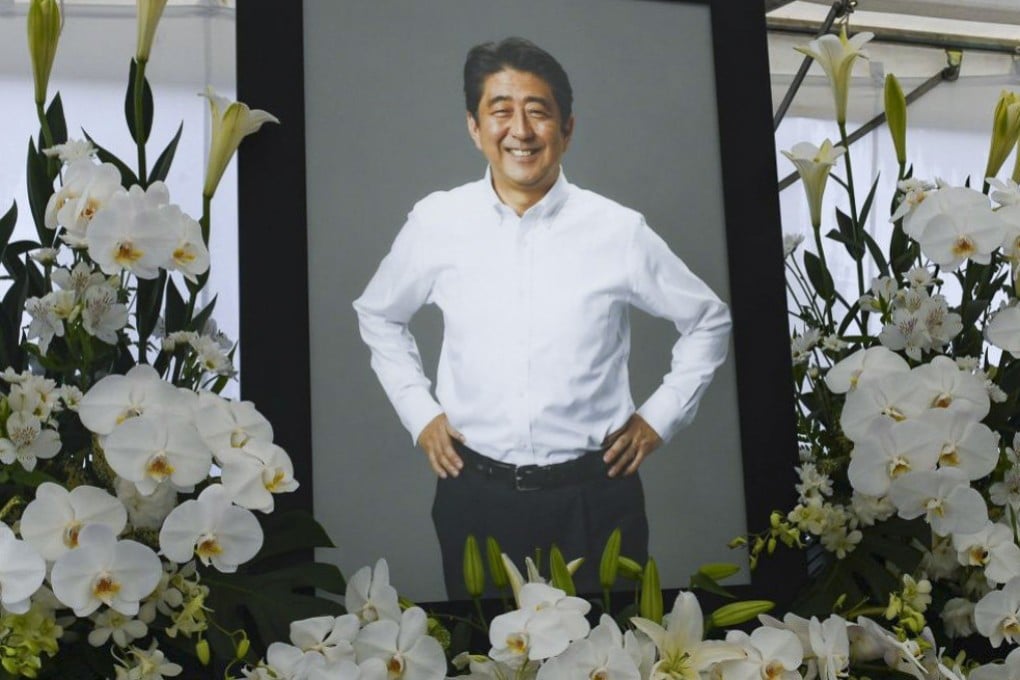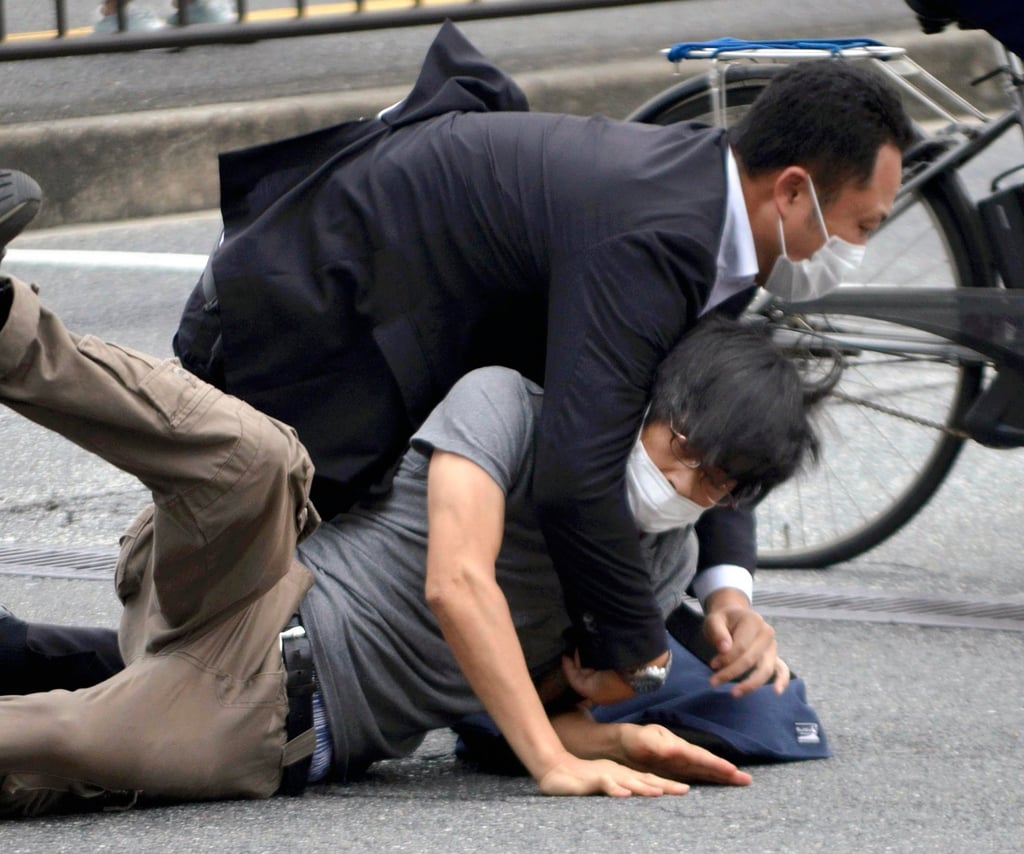Shinzo Abe assassination: the true power in Japan of cult the alleged killer says he really targeted – the Unification Church, aka the Moonies
- The Unification Church has long wielded influence in Japan’s politics and society. As it faces being dissolved, how deep do its tentacles really go?

On the last morning of his life, Shinzo Abe arrived in the Japanese city of Nara, famous for its ancient pagodas and sacred deer. His destination was more prosaic: a broad urban intersection across from the city’s main railway station, where he would be giving a speech to endorse a lawmaker running for re-election to the National Diet, Japan’s parliament.
Abe had retired two years earlier, but because he was Japan’s longest-serving prime minister, his name carried enormous weight.
The date was July 8, 2022. In photos taken from the crowd, Abe – recognisable by his wavy, swept-back hair, charcoal eyebrows and folksy grin – can be seen stepping onto a makeshift podium at about 11.30am, one hand clutching a microphone. A claque of supporters surrounds him.
No one in the photos seems to notice the youngish-looking man about six metres (20 feet) behind Abe, dressed in a grey polo shirt and cargo trousers, a black strap across his shoulder. Unlike everyone else, the man is not clapping.
Abe starts to speak. Moments later, his remarks are interrupted by two loud noises, followed by a burst of white smoke. He collapses to the ground. His security guards run towards the man in the grey polo shirt, who holds a home-made gun – two 40cm (16-inch) metal pipes strapped together with black duct tape.
The man makes no effort to flee. The guards tackle him, sending his gun skittering across the pavement. Abe, shot in the neck, would be dead within hours.

